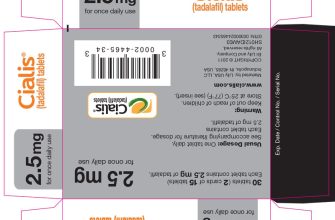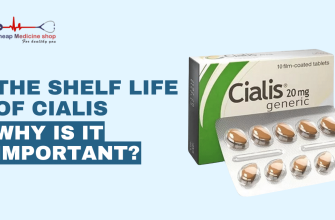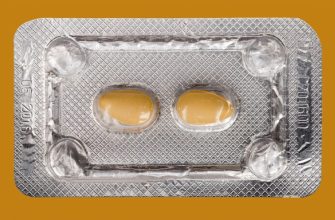Always consult your doctor before combining sildenafil (Viagra) with any heart medication. This is paramount for your safety.
Sildenafil’s mechanism of action involves relaxing blood vessels, which is also the function of many heart medications. This overlap can lead to dangerously low blood pressure, particularly if you’re taking nitrates, alpha-blockers, or certain other cardiovascular drugs. Specific interactions vary significantly, hence the need for individual assessment by a medical professional.
Your physician will review your complete medical history and current medications. They will determine the appropriate course of action, considering your individual health profile and potential risks. This might involve adjusting dosages, suggesting alternative treatments, or recommending against sildenafil use altogether. Open communication with your doctor is key.
Be sure to provide a complete list of all medications, including over-the-counter drugs and supplements, to your doctor. This allows for a thorough assessment of potential drug interactions and helps minimize health risks. Don’t hesitate to ask questions; understanding your treatment plan is your right.
- Sildenafil and Heart Medications: A Detailed Overview
- Sildenafil’s Mechanism of Action and Cardiovascular Effects
- Common Heart Medications and Their Interactions with Sildenafil
- Nitrates
- Alpha-blockers
- Beta-blockers
- ACE Inhibitors and ARBs
- Other Medications
- Dosage Adjustments
- Potential Risks of Combining Sildenafil with Heart Medications
- Identifying Patients at Increased Risk of Adverse Events
- Recommendations for Safe Concomitant Use of Sildenafil and Heart Medications
Sildenafil and Heart Medications: A Detailed Overview
Consult your doctor before combining sildenafil with any heart medication. This is paramount for your safety.
Sildenafil, the active ingredient in Viagra, lowers blood pressure. Many heart medications also affect blood pressure. Combining them can cause dangerously low blood pressure, leading to dizziness, fainting, or even heart attack.
Specific heart medications to be particularly cautious with include nitrates (like nitroglycerin), alpha-blockers, and some blood pressure medications. Your doctor can help identify potential interactions based on your specific medications.
Open communication with your physician is key. Provide a complete list of all your medications, including over-the-counter drugs and supplements. This allows for a thorough assessment of potential risks.
Your doctor might suggest alternative treatments for erectile dysfunction if sildenafil poses a risk given your heart condition. They may recommend lifestyle changes, alternative medications, or other therapies.
Regular monitoring of your blood pressure is advisable if you’re taking both sildenafil and heart medication. This allows for early detection of any adverse effects.
Never self-medicate. Always follow your doctor’s instructions precisely. Ignoring medical advice can have severe health consequences.
This information is for educational purposes only and does not replace professional medical advice. Always seek the guidance of a qualified healthcare professional for any health concerns.
Sildenafil’s Mechanism of Action and Cardiovascular Effects
Sildenafil primarily inhibits phosphodiesterase type 5 (PDE5), an enzyme that breaks down cyclic guanosine monophosphate (cGMP). Increased cGMP levels relax smooth muscle in the corpus cavernosum, facilitating blood flow and causing penile erection. This same mechanism affects blood vessels throughout the body.
Cardiovascular effects stem from Sildenafil’s action on vascular smooth muscle. It can lower blood pressure by relaxing blood vessels, particularly in those with pre-existing pulmonary hypertension. This effect is generally mild in healthy individuals but can be significant in those taking nitrates or with specific cardiovascular conditions. Simultaneous use with nitrates is contraindicated due to the risk of dangerously low blood pressure.
Patients with heart conditions, such as coronary artery disease or congestive heart failure, should discuss Sildenafil use with their physicians. Pre-existing cardiovascular issues increase the risk of side effects, including chest pain, palpitations, and dizziness. Careful monitoring and dose adjustment may be necessary. Regular cardiac evaluations are advised for individuals taking Sildenafil and managing cardiovascular disease.
Sildenafil’s effect on myocardial oxygen demand is complex and requires individual assessment. While it generally causes vasodilation, the resultant decrease in blood pressure may sometimes offset the increased myocardial oxygen consumption associated with sexual activity. Thus, a careful medical history and assessment are imperative before prescribing Sildenafil for patients with heart problems.
Always consult your doctor before starting Sildenafil, particularly if you have any underlying heart conditions. They can assess your individual risk factors and determine the appropriate course of action.
Common Heart Medications and Their Interactions with Sildenafil
Always discuss all medications with your doctor before combining them, especially when taking sildenafil. Sildenafil’s effect on blood pressure can interact negatively with some heart medications.
Nitrates
Combining sildenafil with nitrates, often prescribed for angina (chest pain), can cause a dangerous drop in blood pressure, leading to dizziness, fainting, or even a heart attack. This combination is strictly contraindicated.
Alpha-blockers
- Alpha-blockers, such as tamsulosin or alfuzosin, are used to treat high blood pressure and benign prostatic hyperplasia (BPH).
- Taking sildenafil with alpha-blockers can increase the risk of low blood pressure, especially upon standing up.
- Your doctor might adjust your dosages or recommend alternative treatments.
Beta-blockers
Beta-blockers (like metoprolol or atenolol), commonly used for high blood pressure and heart conditions, generally don’t have significant interactions with sildenafil. However, it’s still wise to inform your doctor about all medications you are taking.
ACE Inhibitors and ARBs
- ACE inhibitors (e.g., lisinopril, ramipril) and Angiotensin Receptor Blockers (ARBs, e.g., losartan, valsartan) lower blood pressure.
- While rare, combining these with sildenafil could potentially further reduce blood pressure. Monitor blood pressure closely and report any significant changes to your healthcare provider.
Other Medications
Other heart medications, such as digoxin or calcium channel blockers, may also have potential interactions with sildenafil. Always provide a complete list of your medications to your physician or pharmacist to assess possible risks and interactions before beginning or changing any treatment regimen.
Dosage Adjustments
- Your doctor might adjust your sildenafil dosage based on your other medications and overall health.
- Starting with a lower dose of sildenafil can help minimize the risk of side effects.
- Regular monitoring of your blood pressure is crucial during treatment.
This information is for educational purposes only and does not substitute professional medical advice. Consult your doctor or pharmacist for personalized guidance.
Potential Risks of Combining Sildenafil with Heart Medications
Consult your doctor before combining sildenafil with any heart medication. Sildenafil, like nitrates, lowers blood pressure. This combination can cause a dangerous drop in blood pressure, leading to dizziness, fainting, or even a heart attack.
Alpha-blockers, often prescribed for high blood pressure or prostate problems, also interact negatively with sildenafil. This interaction can significantly lower your blood pressure, increasing the risk of severe hypotension.
Specific medications to be cautious about include: isosorbide mononitrate, nitroglycerin, and other nitrates used for angina; alpha-blockers such as tamsulosin (Flomax) and terazosin (Hytrin). Your doctor needs to assess your overall health condition and medication list to determine if sildenafil is safe for you.
Never take sildenafil without first discussing it with your cardiologist or primary care physician, especially if you have a history of heart disease, high blood pressure, low blood pressure, or have recently had a heart attack or stroke. They can help you understand the potential risks and determine the safest course of action.
Regular monitoring of your blood pressure is crucial when combining sildenafil with heart medications. Report any unusual symptoms, such as chest pain, shortness of breath, or irregular heartbeat, to your doctor immediately.
Identifying Patients at Increased Risk of Adverse Events
Carefully review patient medical history for conditions that increase the risk of cardiovascular events when using sildenafil. This includes patients with known coronary artery disease, congestive heart failure, uncontrolled hypertension, or recent myocardial infarction.
Assess current medications. Sildenafil interacts with nitrates and alpha-blockers. Concurrent use significantly increases the risk of severe hypotension. Confirm the absence of these medications before prescribing sildenafil.
Consider the patient’s age and overall health status. Older adults and those with significant co-morbidities may have a higher risk of adverse events. Adjust dosages or consider alternatives based on individual patient needs.
Monitor vital signs, particularly blood pressure, before and after initiating sildenafil. Closely observe for signs of hypotension, chest pain, or other cardiovascular symptoms. Encourage immediate medical attention should these symptoms occur.
| Risk Factor | Recommendation |
|---|---|
| Coronary Artery Disease | Thorough cardiovascular evaluation before sildenafil use; potentially contraindicated. |
| Uncontrolled Hypertension | Optimize blood pressure control before prescribing; monitor closely after initiation. |
| Recent Myocardial Infarction | Generally contraindicated within 6 months of event. |
| Nitrate Use | Absolutely contraindicated due to severe hypotension risk. |
| Alpha-blocker Use | Increased risk of hypotension; careful monitoring required. |
Educate patients about potential side effects, emphasizing the need to seek immediate medical help for chest pain, dizziness, or prolonged erection. This proactive approach minimizes risks and ensures patient safety.
Recommendations for Safe Concomitant Use of Sildenafil and Heart Medications
Always consult your doctor before combining sildenafil with any heart medication. Your physician will assess your overall health and medication profile to determine safe usage.
Open communication with your doctor is paramount. Discuss all medications, including over-the-counter drugs and supplements, to prevent potential interactions.
- Regularly monitor your blood pressure, especially if you’re taking nitrates or alpha-blockers. Sildenafil can significantly lower blood pressure.
- Be aware of potential side effects, including dizziness, headaches, and flushing. Report any unusual symptoms to your doctor immediately.
- If you experience chest pain, shortness of breath, or irregular heartbeat, seek immediate medical attention.
Adjusting medication dosages might be necessary. Your doctor will tailor the dosage to minimize risks and optimize treatment effectiveness.
- Avoid grapefruit juice while taking sildenafil, as it can increase blood levels of the drug.
- Follow your doctor’s instructions precisely regarding dosage and frequency of sildenafil intake.
- Consider alternative treatments if sildenafil proves unsuitable or poses unacceptable risks in combination with your heart medications. Your doctor can discuss suitable alternatives.
Regular check-ups with your doctor are recommended, especially when combining medications. This allows for ongoing monitoring of your health and medication efficacy.
Remember, this information is for guidance only, and individual medical advice is necessary. Consult your doctor for personalized recommendations.






